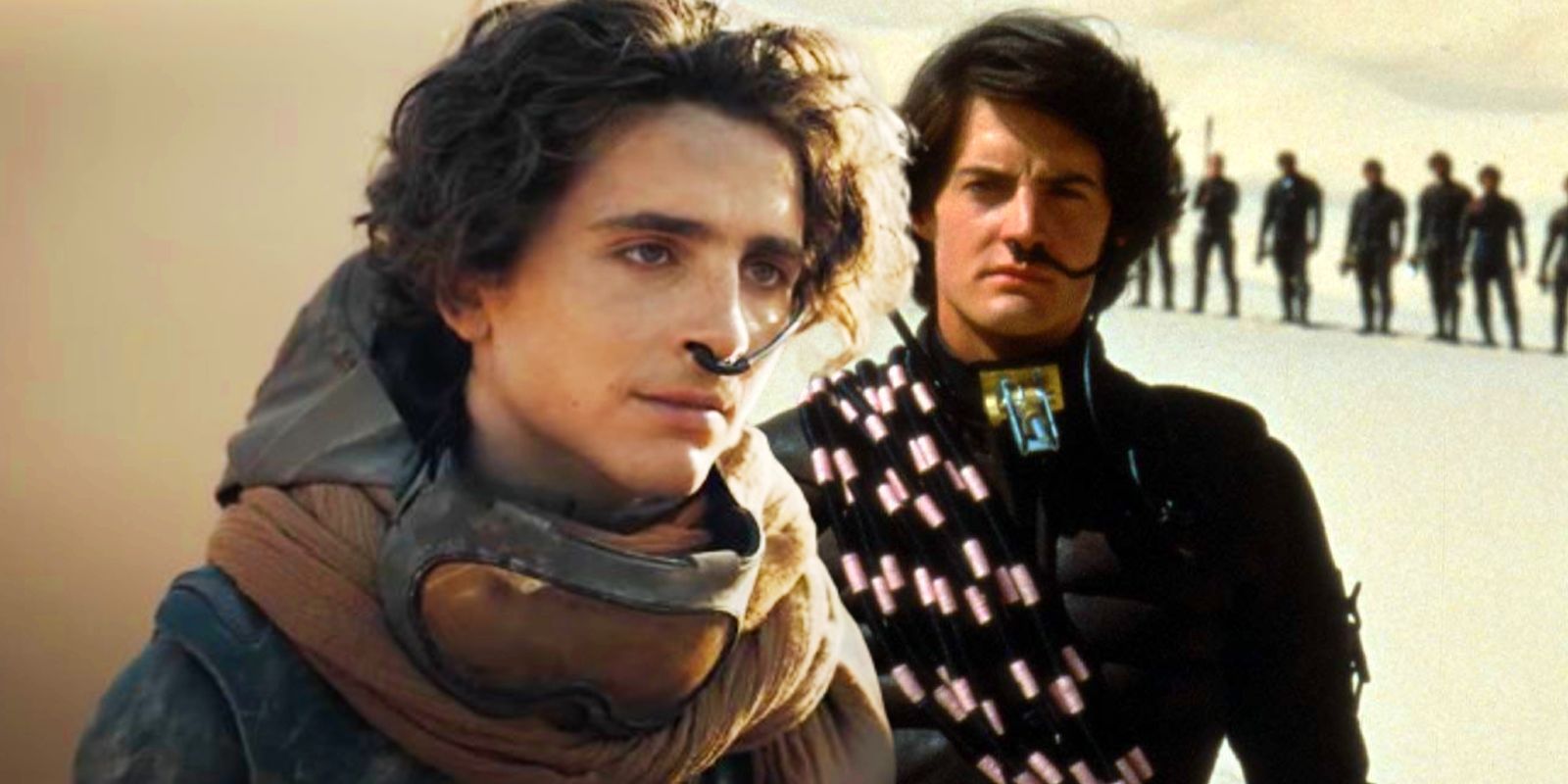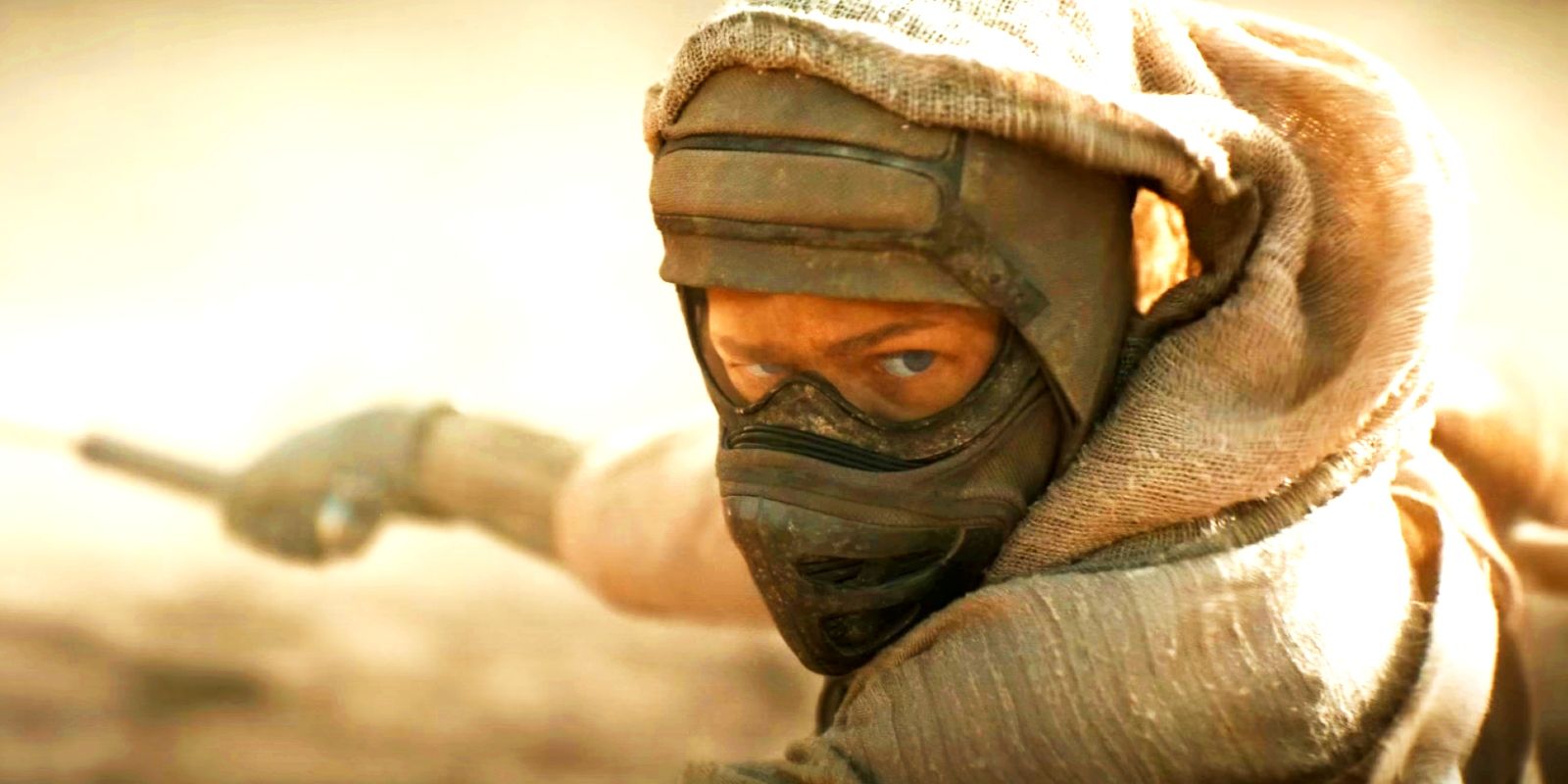Director Denis Villeneueve shares his honest thoughts on 1984’s Dune from David Lynch, revealing what he thinks was missing from the adaptation.

Dune: Part Two director Denis Villeneuve shares his candid thoughts regarding David Lynch’s Dune. Released in 1984, Dune serves as an adaptation of the novel of the same name by author Frank Herbert. The film, which stars Kyle MacLachlan, was met with mostly negative reviews from critics, and the source material wouldn’t be adapted again until Villeneuve’s film in 2021.
In a recent interview with NPR’s Fresh Air podcast (via TheWrap), Villeneuve reveals his thoughts regarding Lynch’s Dune adaptation, explaining that he thinks the filmmaker missed the mark when it came to the depiction of the Fremen. That said, however, Villeneuve still praises the film as a “fantastic interpretation“. Read the filmmaker’s full comment below:
“I was very excited when I learned that the book would be brought to the screen. I remember watching the movie and being very mesmerized and impressed by how David Lynch approached it. I was destabilized by some of his choices.
“Yeah, David Lynch has a very strong identity as a filmmaker, of course, and it bled into the — it’s a fantastic interpretation of the book. But there were some choices that were made that was very far away from my sensibility. I remember watching the movie thinking to myself, ‘Someday, someone else will do it again in the future. It will happen.’ Because I didn’t feel that he captured some of the essence of, specifically, the Fremen culture — I felt that there was some things that were missing. That’s the nature of adaptation, you know?”
Dune: Part Two Fixes Villeneuve’s Lynch Adaptation Complaints
Denis Villeneuve Made A Key Decision

Herbert’s Dune is a truly epic but very dense book. It introduces sci-fi cultures, technology, economies, and worlds, and tells the story of Paul Atreides with great depth. It’s this depth and breadth that resulted in the book long being considered unadaptable. Lynch’s movie attempts to fit the whole story into one feature film, and it understandably struggles to condense the story into its two hours and 17 minutes of runtime.
Villeneuve, however, splits the story in two, with 2021’s Dune ending with Paul’s story only partially complete. Tackling the book over two movies has allowed Villeneuve to devote more time to aspects of Herbert’s material that would otherwise be excised. Dune: Part Two, which just recently hit theaters, delves into the Fremen culture in a way that Lynch’s movie did not, and it’s all the better for it.
The Dune: Part Two reviews have been overwhelmingly positive thus far, with critics hailing the film as an epic continuation of Paul’s (Timothée Chalamet) story. It’s not much of a spoiler to say that Fremen culture, traditions, and beliefs play a crucial part of the narrative, and this is certainly one of the reasons why Villeneuve’s adaptations have been hailed as superior. While 1984’s Dune is sure to remain divisive, the film serves as a reminder of just how difficult Herbert’s novel is to adapt and the tough choices that have to be made when condensing a narrative.